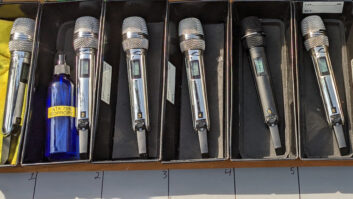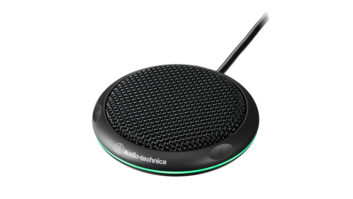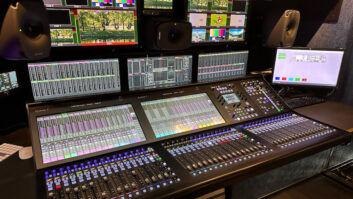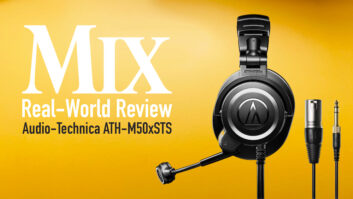Stow, OH (October 4, 2010)—The FCC’s recent TV Band Device ruling has garnered support across the wireless microphone industry, most recently from Audio-Technica.

“We are pleased with the FCC decision, as it recognizes the important contributions to art, entertainment, news and technology that wireless microphones have made,” said Jackie Green, Audio-Technica Vice President of R&D/Engineering. “Audio-Technica wireless systems are technically well-positioned to operate in the environment defined September 23 by the FCC’s Order. We have products that operate in the VHF range, products that operate below Channel 21 where portable TVBD are prohibited, products that operate in the two reserved band ranges, and we also have wireless systems in use today that offer true digital ultra wideband technology. Many of our wireless systems are designed to work well when numerous simultaneous channels are needed or when used in channels adjacent to TV.”
Green continued, “As a leading developer of wireless microphone technology, Audio-Technica has always taken a deep interest and a proactive stance in all situations that could affect the spectra that our customers use. For instance, we vacated the 700-MHz band more than eight years ago, and have developed products that work in lower bands. We have also developed and pioneered the first commercially available ultra wideband audio product, SpectraPulse UWB Wireless Microphone System that operates entirely outside the broadband and TV Band Devices (TVBD)-white spaces area. Audio-Technica has always maintained a commitment to continuous improvement and reliability of wireless microphones in the increasingly crowded RF environment, and the FCC Order has opened the door to our future investment in technical development by making it clear that wireless microphones are here to stay.”
The FCC Memorandum Opinion and Order issued September 23 sets aside two TV channels in each market specifically for wireless microphones. This will allow wireless microphones to operate in those protected channels without interference from new “white space devices.” In addition, according to the FCC ruling, professional users of large arrays of wireless microphones, such as theatrical performances and music concerts, can apply for extended spectrum coverage via a geolocation database that the FCC is building and that is currently up for bid for management.
Audio-Technica
www.audio-technica.com







